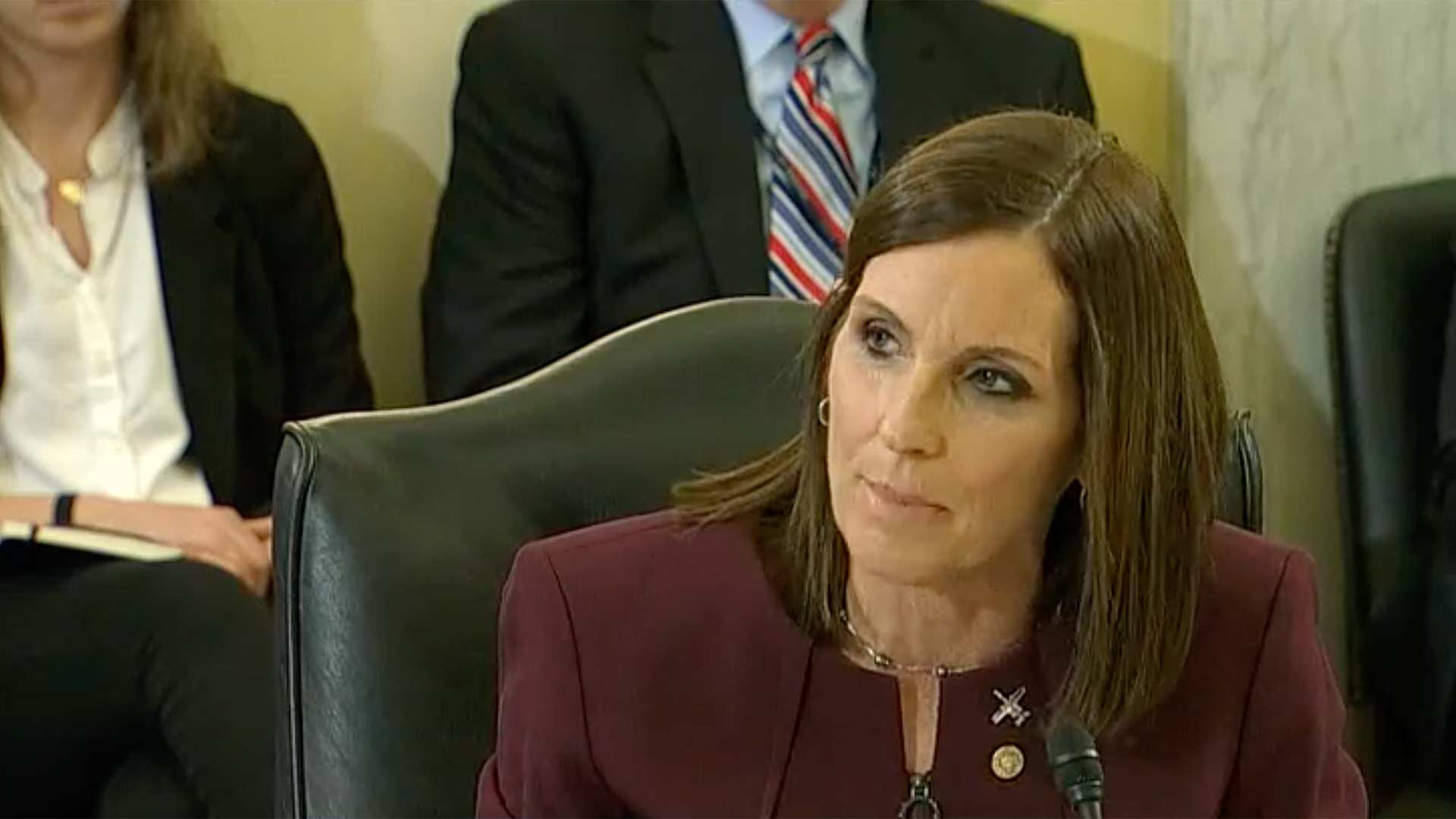 Sen. Martha McSally speaks at the Senate Armed Services Committee hearing on military sexual assault, March 6, 2019, in this still image from C-SPAN video.
Sen. Martha McSally speaks at the Senate Armed Services Committee hearing on military sexual assault, March 6, 2019, in this still image from C-SPAN video.
WASHINGTON — Sen. Martha McSally, the first female Air Force fighter pilot to fly in combat, said Wednesday that she was sexually assaulted by a superior officer, and later, when she tried to talk about it to military officials, she "felt like the system was raping me all over again."
The Arizona Republican, a 26-year military veteran, made the disclosure at a a Senate hearing on the military's efforts to prevent sexual assaults and improve the response when they occur. Lawmakers also heard from other service members who spoke of being sexually assaulted and humiliated while serving their country.
AZPM's Steve Jess reports on McSally assault testimony
McSally said she did not report being raped because she did not trust the system, and she said she was ashamed and confused. She said she was impressed and grateful to the survivors who came forward to help change the system. She was in the ninth class at the Air Force Academy to allow women, and said sexual harassment and assault were prevalent. Victims mostly suffered in silence, she said.
McSally read from a prepared statement getting choked up at one point. She referred to "perpetrators" who had sexually assaulted her, an indication that she had been attacked more than once.
She did not say whether her assaults happened at the academy or during active duty. She didn't name any names.
She said she stayed silent for years. But later, as she watched the military grapple with how to handle sexual assaults, she felt like she should speak out.
"I was horrified at how my attempt to share generally my experiences was handled," she said. She almost left the Air Force after 18 years.
"Like many victims, I felt like the system was raping me all over again."
McSally's revelation comes not long after Sen. Joni Ernst , R-Iowa, detailed her own abuse and assault, and at a time of increased awareness over the problem of harassment and assault in the armed forces and the larger #MeToo movement that roiled Hollywood and major corporations.
Reports of sexual assaults across the military jumped nearly 10 percent in 2017 — a year that also saw an online nude-photo-sharing scandal rock the Defense Department. Reporting for 2018 is not yet available. Reports of sexual assaults were also up at the military academies, most at West Point.
McSally said she shares in the disgust of the failures of the military system and many commanders who haven't addressed the problems of sexual misconduct. She said the public must demand that higher-ranking officials be part of the solution, setting the tone for their officers.
"We have come a long way to stop military sexual assault, but we still have a long way to go," the senator said. "It took many years and too many lives ruined."
Her colleagues on the committee lauded her for coming forward.
"I'm deeply affected by that testimony," said Sen. Kirsten Gillibrand, D-N.Y.
McSally told the Wall Street Journal last year that she had been sexually abused as a teenager by her high school track coach. She said the coach took advantage of her through "emotional manipulation" because her father had died. He denied the allegations.
McSally served in the Air Force from 1988 until 2010 and rose to the rank of colonel before entering politics.
In 2001, McSally sued the military so she would not be required to wear a head covering while she was stationed in the Middle East. McSally, who had worked as a national security aide for Sen. Jon Kyl, R-Ariz., was elected to the House in 2014 and served two terms.
She was appointed by Gov. Doug Ducey, R-Ariz., in December to replace the late GOP Sen. John McCain after she narrowly lost last year's race for Arizona's other Senate seat to Democrat Kyrsten Sinema.
McSally had been critical of Donald Trump in 2016 but embraced a tough stance on immigration and praised the president during last year's midterm election.
She will serve until 2020, when voters will elect someone to finish the final two years of McCain's term.
Defense officials have argued that an increase in reported assaults reflects a greater willingness to report attacks, rather than indicating assaults are rising. Sexual assaults are a highly underreported crime, both in the military and across society as a whole. Greater reporting, they argue, shows there is more confidence in the reporting system and greater comfort with the support for victims.

By submitting your comments, you hereby give AZPM the right to post your comments and potentially use them in any other form of media operated by this institution.